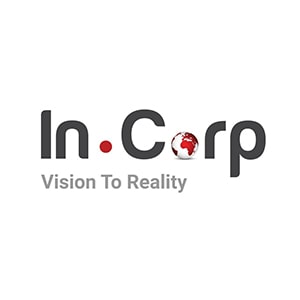


How to Incorporate a Company in the Philippines — 2024 Guide
Updated: July 15, 2024
With the Philippines experiencing strong economic growth at a rate of 5.7 percent year-on-year in the first quarter of 2024, this is a great time to pursue expanding your company and setting up operations in the country. Such growth cultivates a favorable business climate and offers abundant opportunities for companies seeking to enter the Southeast Asian market.
Although the Philippine Government has progressed in opening its economy to foreign investors, certain considerations remain. Let’s now explore the process of incorporating a company in the Philippines in 2024.
Please note that while there are several business entities available in the Philippines, each with its own set of requirements, this article will specifically discuss the process of incorporating a domestic corporation, which is similar to a limited liability company.
- What Are the Requirements for Incorporating a Company in the Philippines?
- Executive Breakdown
- Foreign Equity
- Capital Requirements
- What Are the Steps for Incorporating a Company in the Philippines?
- SEC Registration
- Acquiring Barangay Clearance
- Obtain Business Permit From Local Mayor’s Office
- BIR Registration
- Register as an Employer
- What Should You Do After Company Registration?
- Frequently Asked Questions
Requirements for Incorporating a Company in the Philippines?
To ensure a seamless and compliant incorporation process when establishing a company in the Philippines, it is vital to meet specific key requirements. Here are the essential steps and prerequisites to consider:
Executive Breakdown
- Two to 15 directors or incorporators (majority need to reside in the Philippines)
- A minimum of three key officers is required:
- President acting as the company’s signatory (does not have to be a resident of the Philippines)
- Corporate Secretary in charge of the company’s administration (must be a resident of the Philippines)
- Treasurer in charge of the company’s finances (must be a resident of the Philippines)
Foreign Equity
A domestic corporation in the Philippines may have foreign equity, which is broken down into three brackets:
- >40.01% Foreign Equity
- <40% Foreign Equity
- 0% Foreign Equity (100% Filipino-owned)
Related Read: How to Set Up a Domestic Corporation in the Philippines
Capital Requirements
Capital requirements are dependent on the foreign equity bracket mentioned above:
- 0% Foreign Equity → US$100 or approximately ₱5,000
- <40% Foreign Equity → US$100 or approximately ₱5,000
- >40.01% Foreign Equity → US$200,000 or approximately ₱4,800,000
Capital can be injected once the company has acquired a local bank account.
Capital requirements can be reduced by:
- Employing a minimum of 50 Filipino citizens → minimum capital requirement of US$100,000 or approximately ₱2,400,000
- Can prove the use of advanced technology in the company’s operations → minimum capital requirement of US$100,000 or approximately ₱2,400,000
- Exporting at least 70% of product → minimum capital requirement of US$100 or approximately ₱5,000
Steps for Incorporating a Company in the Philippines?
1. Register your Business with the SEC
The Philippine Securities and Exchange Commission (SEC) has quite a mature online system on their website for reserving and registering your company name and details. Simply create an account in the SEC’s Company Registration System to check if your desired company name is available, and then reserve/register that name.
If preferred, you can also reserve and register your company name at SEC’s Name Verification Unit in their office in Mandaluyong.
During this process, you will also need to provide the following documents to SEC:
- Your company’s Articles of Incorporation and By-laws
- Joint Affidavit of two incorporators
- Your company’s Treasurer’s Affidavit
If your application is approved, SEC will issue a Certificate of Registration to legitimize your company’s existence and allow you to start doing business in the Philippines.
Related Read: How to Set Up a Branch Office in the Philippines
2. Obtain Clearance from the Barangay
The Barangay is the district of your chosen region in charge of administration for the local government. Business establishments formed therein will need to have the local Barangay’s approval.
Your application for Barangay Clearance will require:
- Your Certificate of Registration from SEC
- Two valid forms of identification
- Proof of Address of your company’s local office (can be a Certificate of Land Title or Lease Contract)
3. Get Your Company’s Business Permit From the Local Mayor’s Office
For this step, you will have to visit your municipality’s local office and request a business permit. Along with your business permit application, you will also need to provide:
- Your Certificate of Registration from SEC
- Two valid forms of identification
- Proof of Address of your company’s local office (can be a Certificate of Land Title or Lease Contract)
- Your Barangay Clearance
4. Register Your Company With the Bureau of Internal Revenue
As part of your tax obligations in the Philippines, you’ll need to register your new company with the Bureau of Internal Revenue (BIR). To receive your company’s Taxpayer Identification Number (TIN), you’ll need to visit your company’s local Regional District Office (RDO) and do the following:
- Accomplish BIR Form 1903 – Application for Registration (For Partnerships/Corporations)
- In conjunction with your BIR Form 1903, submit your previously completed:
- Certificate of Registration from SEC
- Your company’s Barangay Clearance
- Your company’s Business Permit from the Mayor’s Office
- Proof of Address (Certificate of Land Title or Lease Contract)
- Valid IDs, if required
- If applicable, pay for your company’s Registration Form (BIR Form 0605) and Documentary Stamp Tax (BIR Form 2000)
- Register your account books and up-to-date invoices
- Finally, wait for your BIR Certificate of Registration (BIR Form 2303) to be issued
5. Register as an Employer
Finally, you need to register as an employer with the following government agencies:
- Social Security System (SSS) (for social security)
- Philippine Health Insurance Corporation (PhilHealth) (for health benefits)
- Home Development Mutual Fund (HDMF or Pag-IBIG Fund) (for housing loan benefits)
To Do’s After Company Incorporation
After successfully registering your company, it is imperative to diligently adhere to post-compliance obligations to maintain legal and operational integrity. These responsibilities encompass a range of essential tasks, including updating your books of accounts regularly, providing proper compensation to employees, and giving receipts to your customers or clients.
By diligently attending to these post-compliance requirements and seamlessly incorporating them into your day-to-day operations, you not only mitigate potential risks for your business but also lay a solid groundwork of trust and professionalism with your stakeholders and regulatory bodies.
Related Read: Essential Compliance Requirements for Corporations in the Philippines
Allow Us to Guide You Through the Process of Incorporating Your Company in the Philippines
If you would like to make the incorporation process completely seamless, you may contact us and we will be happy to help you incorporate your company in the Philippines.
Frequently Asked Questions
How to start a business in the Philippines?
Starting a business in the Philippines (Domestic Corporation) is a simple 5-step process:
- Register your business with the SEC.
- Obtain clearance from the Barangay
- Obtain company’s business permit from the local Mayor’s office
- Register your company with the Bureau of Internal Revenue (BIR)
- Register as an employer
Do foreign individuals need a special license to do business in the Philippines?
Yes. All foreigners are required to obtain a License to Do Business from the SEC before starting any business operations in the Philippines.
Is 2024 a good time to start or expand a business in the Philippines?
The Philippines is experiencing a steady increase in trend growth and GDP, making it an opportune moment to consider expanding your business into the country as it enters a phase of significant growth.


1. What are the issues may happen with company In Corp Philippines which has already registered the business with the SEC & BIR in 2022 but yet still pending for the SSS, PhilHealth and HDMF approval? Could you advise what is the possibility?
2. Is it a Philippines Government Policy for employer/company must have at least hire 1st employee before registering for the SSS, Phil-health, and HDMF? Is this a standard legislative procedure or there is an update before? As there is no such information provided online or official website.
Thank you for your time & assistance on my queries.
Best regards!
To answer your queries please see
1. In general, there would be no issues so long as the company complies with the monthly reporting of BIR Form 1601C reflecting zero transactions as a basis that no employees yet.
2. Yes, registration to these three labor welfare agencies can only commence on or after the hired date of 1st employee.